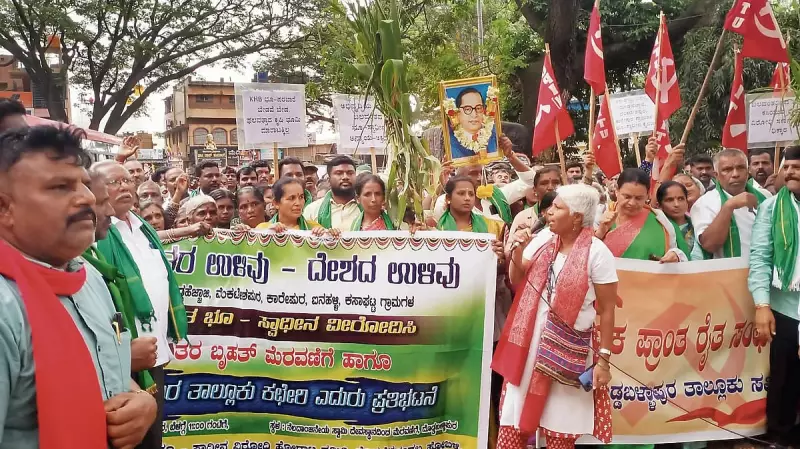
BENGALURU RURAL - In a dramatic show of resistance, hundreds of determined farmers from Doddaballapur taluk took to the streets on Tuesday, voicing their fierce opposition against what they term as "forced land acquisition" for the much-touted Bengaluru Suburban Railway Project and associated industrial development.
The Heart of the Protest
Armed with placards and raised voices, the agricultural community gathered outside the deputy commissioner's office, creating a sea of protest that brought attention to their long-standing grievances. The farmers' primary contention revolves around the acquisition of approximately 1,010 acres of fertile agricultural land across six villages in the region.
"We are not against development, but we cannot sacrifice our livelihoods and ancestral lands without proper consultation and fair compensation," stated one elderly farmer who has worked the land for over four decades.
Key Demands of the Farming Community
- Immediate halt to all land acquisition proceedings until proper dialogue is established
- Transparent disclosure of the complete development plan and land utilization strategy
- Market-value compensation packages that reflect current land rates
- Assurance of employment opportunities for affected families in upcoming projects
- Proper rehabilitation and resettlement plans for displaced farmers
Official Response and Next Steps
Local authorities have acknowledged receiving the farmers' memorandum and assured that their concerns would be forwarded to higher government levels. However, protest leaders remain skeptical, vowing to intensify their agitation if concrete action isn't taken within the coming weeks.
The timing of this protest is particularly significant, coming amid growing tensions between development imperatives and agricultural sustainability across Karnataka. With Doddaballapur positioned as an emerging industrial hub near Bengaluru, the struggle highlights the ongoing conflict between urban expansion and rural preservation.
Broader Implications
This protest mirrors similar land rights movements across India, where rapid infrastructure development often clashes with the interests of farming communities. The Doddaballapur case serves as a crucial test case for how Karnataka balances its industrial ambitions with protecting its agricultural backbone.
As the standoff continues, all eyes remain on the state government's next move – whether it will push forward with acquisition plans or seek a negotiated settlement that addresses farmers' legitimate concerns while pursuing regional development goals.






